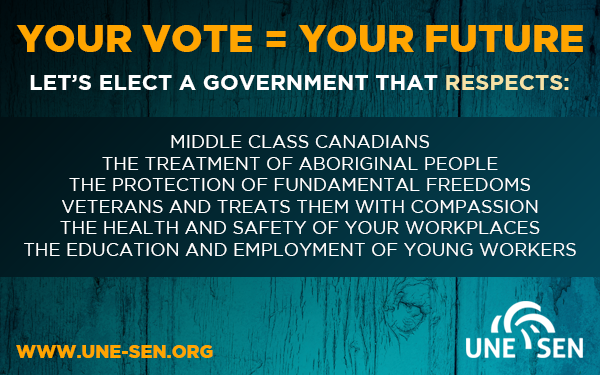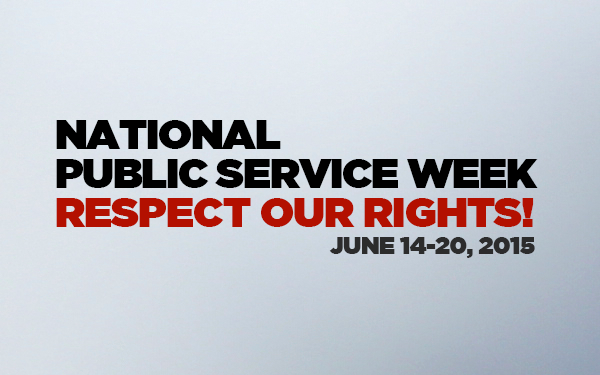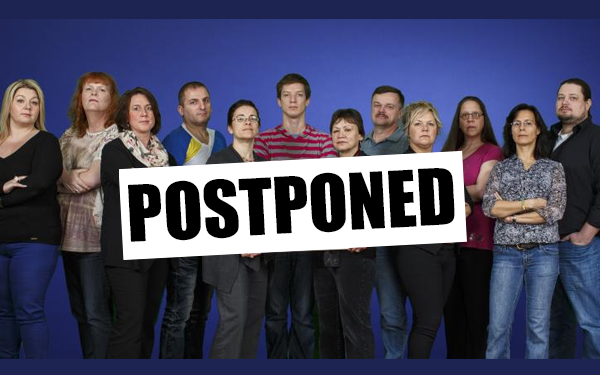
PSAC is opposed to the government’s new security screening policy — which includes credit checks and fingerprinting of public service employees — and will be challenging it.
We are currently gathering evidence to file a court challenge and a privacy complaint with the Privacy Commissioner’s office.
“We are concerned that these checks will be an unwarranted gross violation of personal privacy and they could put people’s livelihoods in jeopardy without cause. We are also fearful that the policy could be applied in an arbitrary way,” said PSAC President Robyn Benson.
What follows is a brief overview of this issue and how it impacts our members. More detailed information is available here.
What is the new security screening policy?
The new policy, called the Standard on Security Screening, states that a valid security status or security clearance is a condition of employment, contract, appointment or assignment for all current and future potential federal public service workers. The policy took effect on October 20, 2014 and departments have 36 months to comply with it.
Enforcement of the new policy is planned to start this summer.
To whom does the new Standard on Security Screening apply?
The new Standard applies to federal government departments and separate agencies (as identified in section 2 and Schedules IV and V of the Financial Administration Act). The new Standard replaces the Personnel Security Standard, created in 1994.
The policy applies to all new hires and current employees whose security status is renewed or changed, or who apply for an assignment or promotion.
What does the new Standard on Security Screening do?
The Standard creates three types of security screening:
- reliability status,
- secret clearance, and
- top secret clearance
Screening for each of these types is performed at either a standard or enhanced level:
- Standard screening is conducted for all duties or positions in the federal government when responsibilities do not relate to security and intelligence functions.
- Enhanced screening is performed for duties or positions involving security and intelligence functions or which are considered high risk.
What are some examples of the new security screening measures?
Many of the requirements in the new security screening are an unnecessary invasion of the privacy rights of government workers.
For example:
- Mandatory criminal record checks, which may include an inquiry of national or local police databases;
- Credit reports performed by a credit reporting agency;
- Financial assessment questionnaires;
- A security questionnaire or interview, which can cover topics related to personal activities, such as finances, alcohol use, use of computers and technology, online presence, ideology, conduct, associations, etc…
- Polygraph examinations for individuals undergoing enhanced top secret security clearance;
- A requirement for employees to report any changes in their financial situation to the employer, including bankruptcy or unexpected wealth;
- The employer can require biometric screening, including fingerprinting, at any level of screening.
Why does PSAC oppose the new Standard on Security Screening?
Employees have a right to privacy. While there are some times when privacy rights have to be balanced with security needs, privacy must be protected unless there is a clear security reason. PSAC believes this policy goes way too far and most of the measures are not necessary to ensure security. The government has not shown any need for these new measures.
The new Standard violates the requirements of the Privacy Act and the protections for individual privacy protected by the Canadian Charter of Rights and Freedoms.
These checks already happen in some government departments and depending on clearance levels. Why is PSAC challenging it now?
The new policy goes much further than previous policies and practices on security screening. While some employees who are in high security positions may have had to undergo security screening, this new policy applies to all employees. Employees, regardless of security status, will have to undergo fingerprinting and credit checks. This is unnecessary and goes too far. Credit checks can especially have a negative impact on members who are most vulnerable (e.g single moms, people with disabilities who have had to take long term sick leave). The policy doesn’t provide any details of what is considered “bad credit”.
Another new aspect of the policy is to require employees to report any changes in financial status or even about their personal lives (e.g. divorce). Members who fall on hard times will have the added worry that their job will be in jeopardy.
What recourse is there for employees who will be subject to the new Standard for Security Screening?
If this policy has had a negative impact on you, please contact your component for assistance. You may be able to file a grievance or access other recourse processes.
It is important to note that while PSAC is challenging the new Standard, it is currently in effect. Employees that do not abide by the Standard can have their assignment, employment or contract revoked or be terminated if they fail to get the required security clearance.
Therefore, we suggest that you follow the “obey now, grieve later” rule – this means that you should comply with the requirements, but if you want to challenge the Standard or how it is applied to you, you can contact your component representative to file a grievance.








